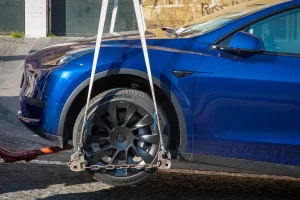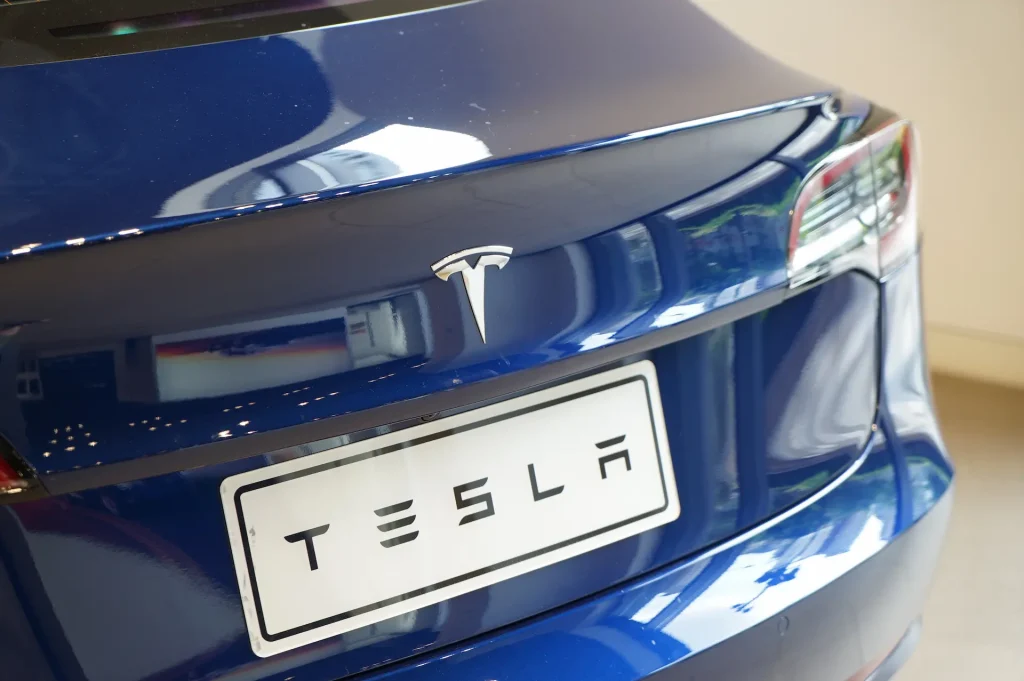Tesla Autopilot: Navigating the Legal Landscape in Texas

As autonomous vehicle technology continues to advance, Tesla’s Autopilot system has become a focal point in discussions about road safety and liability. While promising to revolutionize transportation, this technology also presents unique challenges in the realm of personal injury law, particularly in states like Texas. This blog post will explore the intersection of Tesla’s Autopilot system and personal injury claims, with a specific focus on the legal landscape in the Lone Star State.
Understanding Tesla’s Autopilot
Before delving into the legal complexities, it’s crucial to understand what Tesla’s Autopilot system is and how it functions. Autopilot is an advanced driver-assistance system (ADAS) that combines adaptive cruise control, lane centering, and other features to provide a semi-autonomous driving experience. However, it’s important to note that despite its name, Autopilot is not a fully autonomous driving system. Tesla emphasizes that drivers must remain alert and ready to take control at all times.
The Current State of Autonomous Vehicle Laws in Texas
Texas has been proactive in addressing the emergence of autonomous vehicles. In 2017, the state passed Senate Bill 2205, which established a basic framework for the operation of autonomous vehicles on Texas roads. The law defines key terms related to autonomous technology and sets forth requirements for operating these vehicles.
Under Texas law, autonomous vehicles are permitted on public roads as long as they:
- Comply with all traffic laws and regulations.
- Have a data recording system.
- Are capable of achieving a minimal risk condition if a failure occurs.
- Are registered and titled in accordance with state law.
While this legislation provides a foundation for autonomous vehicle operation, it does not specifically address liability issues in accidents involving semi-autonomous systems like Tesla’s Autopilot.
Challenges in Establishing Liability
When it comes to personal injury claims involving Tesla’s Autopilot, establishing liability can be complex. Traditional auto accident cases typically revolve around driver negligence, but with semi-autonomous systems, the lines of responsibility become blurred. Several factors contribute to this complexity:
- Driver Responsibility: Tesla maintains that drivers must remain attentive and ready to take control at any time. This raises questions about the extent of driver responsibility when Autopilot is engaged.
- System Limitations: Autopilot has known limitations, such as difficulty detecting stationary objects or navigating complex intersections. Understanding these limitations is crucial in determining liability.
- Data Access: Tesla vehicles collect extensive data during operation, which can be vital in reconstructing accidents. However, accessing this data can be challenging for plaintiffs and their attorneys.
- Product Liability: In some cases, the focus may shift from driver negligence to potential defects in the Autopilot system itself, introducing elements of product liability law.
- Evolving Technology: As Tesla continually updates its Autopilot software, the capabilities and limitations of the system may change, potentially affecting liability considerations in accidents that occur at different points in time.
Texas Personal Injury Law and Autopilot Cases
In Texas, personal injury claims are generally governed by negligence law. To succeed in a negligence claim, a plaintiff must prove four elements:
- The defendant owed a duty of care to the plaintiff.
- The defendant breached that duty.
- The breach caused the plaintiff’s injury.
- The plaintiff suffered actual damages.
In cases involving Tesla’s Autopilot, each of these elements presents unique challenges that a lawyer at The Callahan Law Firm can provide assistance with:
Duty of Care
Determining the standard of care for a driver using Autopilot can be complex. Does engaging Autopilot alter the driver’s duty of care? Texas courts have yet to definitively answer this question. If you face a similar situation, your car accident attorney at The Callahan Law Firm will be able to provide assistance and recourse.
Breach of Duty
If a driver is using Autopilot as intended and an accident occurs, it may be difficult to prove that they breached their duty of care. Conversely, if a driver misuses the system or ignores warnings, this could potentially constitute a breach.
Causation
Establishing causation in Autopilot-related accidents often requires expert testimony to analyze vehicle data and determine whether the system or the driver’s actions (or inactions) caused the accident.
Damages
While proving damages may be similar to traditional auto accident cases, the potential involvement of a semi-autonomous system could affect how damages are calculated or apportioned.
Texas Is An At-Fault State
Texas uses an at-fault rule. Under this system the driver bearing responsibility for the car accident will be held liable for all damages suffered. The party suffering damages will be able to claim compensation from the at-fault driver’s insurance provider.
In Autopilot cases, this rule could lead to complex scenarios. As an at-fault state assigns liability to the driver based on their actions, advanced driver assist systems such as Autopilot can blur the lines between machine and human responsibility. Given the complexities involved, it is vital that you consult with an experienced attorney at The Callahan Law Firm to assist with the specific circumstances surrounding your case.
Product Liability Considerations
In some Autopilot-related cases, plaintiffs may pursue product liability claims against Tesla. Texas recognizes three types of product liability claims:
- Manufacturing Defects
- Design Defects
- Marketing Defects (Failure to Warn)
For Autopilot cases, design defect and failure to warn claims may be most relevant. Plaintiffs might argue that the Autopilot system’s design is inherently dangerous or that Tesla failed to adequately warn users of its limitations.
However, Texas law includes a “rebuttable presumption” that a product manufacturer or seller is not liable for harm caused by a product if the product complies with mandatory safety standards or regulations. This could potentially provide some protection for Tesla, assuming Autopilot meets all relevant safety standards.
The Role of Data in Autopilot Cases
Tesla vehicles are essentially computers on wheels, constantly collecting and transmitting data. This data can be crucial in reconstructing accidents and determining liability. However, accessing this data presents challenges:
- Privacy Concerns: Tesla may be reluctant to share user data due to privacy considerations.
- Proprietary Information: Some data may be considered proprietary, making Tesla hesitant to disclose it.
- Technical Expertise: Interpreting the data often requires specialized knowledge, necessitating expert involvement.
- Legal Hurdles: Obtaining the data may require court orders or subpoenas, potentially leading to protracted legal battles.
In Texas, courts have broad discretion in compelling the production of evidence. However, the unique nature of Tesla’s data collection and the potential for trade secret claims could complicate discovery processes in Autopilot-related cases.
Insurance Implications
The introduction of semi-autonomous systems like Autopilot has implications for auto insurance in Texas. Currently, Texas law requires all drivers to carry minimum liability insurance. However, as autonomous technology advances, questions arise about how insurance policies will adapt.
Some potential considerations include:
- Will premiums be affected by the use of Autopilot or similar systems?
- How will insurers handle claims involving Autopilot failures?
- Will new types of coverage emerge specifically for semi-autonomous or fully autonomous vehicles?
As of now, Texas insurance law has not specifically addressed these questions, leaving room for potential legislative or regulatory action in the future.
Recent Cases and Legal Developments
While Texas courts have not yet seen many high-profile cases involving Tesla’s Autopilot, cases in other jurisdictions can provide insights into how these matters might be handled. For example, in a Florida case, a federal judge ruled that Tesla must face a lawsuit claiming its Autopilot system caused a fatal crash. The judge found that the plaintiffs had presented enough evidence to suggest that Tesla’s warnings about Autopilot’s limitations may have been inadequate.
Tesla has reached a settlement in a lawsuit brought by the family of an Apple engineer who died in a 2018 car crash while using Autopilot. The settlement comes just before the trial was set to begin and avoids further public scrutiny of Tesla’s driver-assistance technology.
While the terms of the settlement are confidential, the case highlights the increasing legal and reputational risks associated with Tesla’s Autopilot system. Despite numerous accidents and investigations, Tesla continues to promote its self-driving technology as crucial to its future success.
As more cases involving Autopilot and similar technologies make their way through the courts, we can expect to see the development of legal precedents that will shape how these cases are handled in Texas and across the country.

Protect Your Rights – Get Legal Assistance
The intersection of Tesla’s Autopilot technology and personal injury law in Texas presents a complex and evolving legal landscape. As semi-autonomous and autonomous vehicles become more prevalent on Texas roads, we can expect to see new legal challenges and potentially new legislation or regulations to address these issues.
As the technology continues to advance and more cases make their way through the courts, we can expect further clarification on how Texas law will handle the unique challenges presented. If you’ve suffered injuries due to a vehicle accident involving Tesla’s Autopilot, remember that our proficient lawyers are here to help when necessary, providing legal guidance and support in your time of need.
Contact The Callahan Law Firm to schedule a no cost consultation with a Tesla car accident lawyer.

Michael S Callahan is an attorney and founder of The Callahan Law Firm. He focuses his practice on representing individuals and families in personal injury cases involving motor vehicle and truck accidents, workplace accidents and defective products. With over 25 years of experience, he is dedicated to fighting on behalf of people whose lives have been forever altered by the negligence and carelessness of corporations and individuals. Originally trained as a mechanical engineer, Michael has been practicing law and fighting for justice for those who need it most since 1994. He is board-certified in Personal Injury Trial Law by the Texas Board of Legal Specialization and a member of various esteemed legal associations. Outside of work, Michael enjoys spending quality time with his family, outdoor activities, and continually striving to improve as a trial lawyer and human being.











